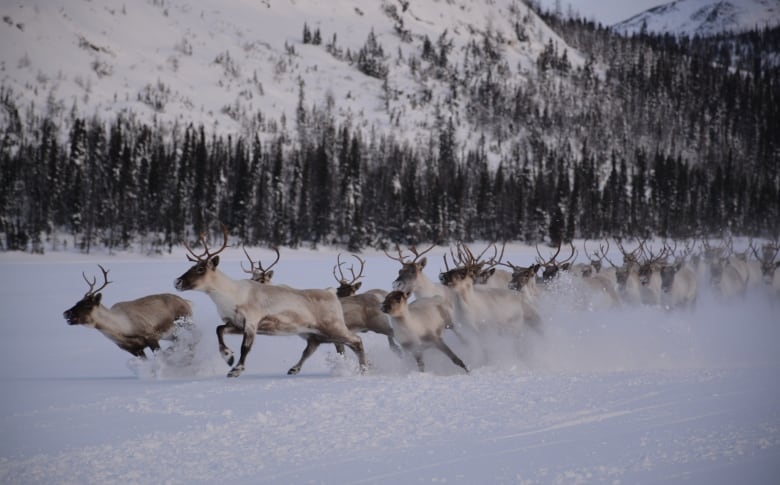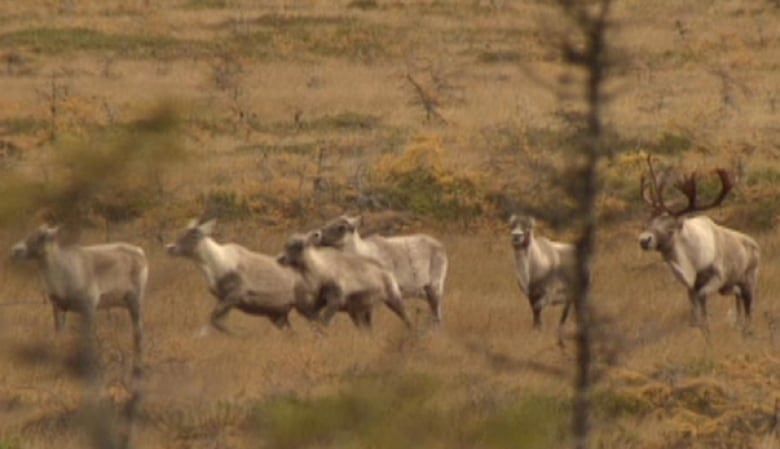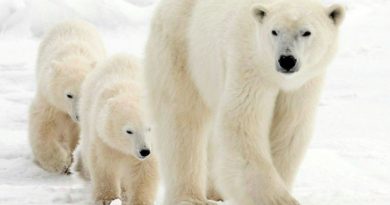Canada: This caribou herd’s population has dropped 99 % since 2001

The George River caribou herd is in a critical state, according to biologists from Newfoundland and Labrador (Atlantic Canada) and Quebec (eastern Canada) who completed a census of the long-troubled animals in July.
The herd has been declining so rapidly that there was a ban put in place in 2013 against hunting the animals.
There were roughly 800,000 in the population as of the early 1990s.
Today the size of the herd is 5,500.
That’s down 38 per cent since 2016, and 99 per cent since 2001.
“That puts the herd at its greatest known risk for total extirpation,” the Newfoundland and Labrador government said in a statement Friday afternoon.
Wildlife managers have seen the herd fall consistently, despite several actions.
“By 2010 the population was estimated to be just 74,000 caribou, triggering the harvest restrictions that included the end of commercial hunting. Despite a complete closure of all hunting as of 2010, by 2016 the population had declined to 8,900 animals.”
Health and number of calves good

The government says surveys conducted in October 2016 and 2017 documented good numbers of calves being born into the population, and testing has indicated the herd are currently healthy with decreasing prevalence of parasites.
More, the province has been monitoring the wolf population and said it appears to be quite low over the herd range, and there is low levels of habitat disturbance.
Need government action
“The continued decline in George River Caribou Herd numbers is serious and disturbing,” Gerry Byrne, minister of fisheries and land resources, said in a statement.
Byrne said Newfoundland and Labrador wants Indigenous governments, Quebec and Ottawa to develop “a co-management approach that would support the recovery of these iconic and vital animals.”
In 2017 the Committee on the Status of Endangered Wildlife in Canada recommended listing the George River caribou herd as endangered.
However, the Newfoundland and Labrador government decided not to list the herd, instead opting to develop a co-management approach between Indigenous governments and communities and the government of Newfoundland and Labrador.
Related stories from around the North:
Canada: Indigenous groups prompt Canadian province to reconsider caribou designation, Eye on the Arctic
Finland: Gold mining in northern Finland hurts reindeer, says Natural Resources Institute, YLE News
Norway: Norwegian «slow TV» follows reindeer herd to the coast of the Barents Sea, The Independent Barents Observer
Russia: Russia plans fenced parks to confine reindeer herding in Arctic, The Independent Barents Observer
Sweden: Indigenous reindeer herders request emergency aid after drought, wildfires ravage Sweden, Eye on the Arctic
United States: Amid shrinking sea ice, hunters race to adapt in Alaska, Alaska Public Media




Hello! I have a question about the Caribou decline. I was really hoping someone could answer them. WHat are the different perspectives on this topic (social, economical, political, and environmental)? I would really really appreciate someone to get back to me. Thank you.